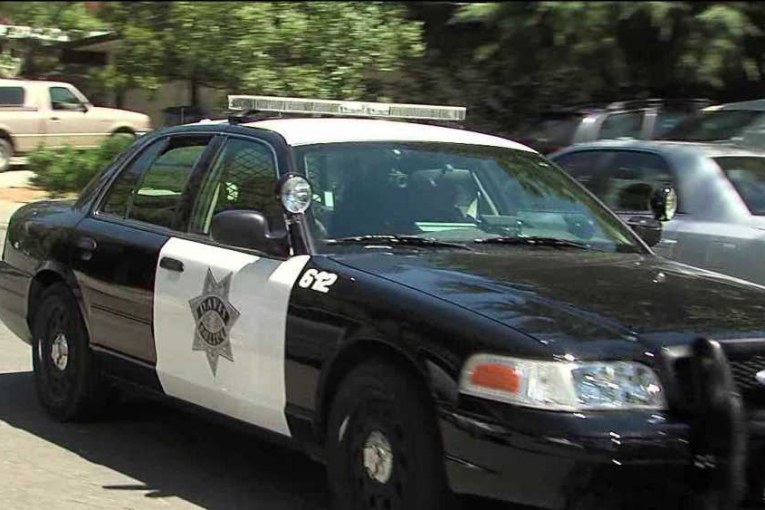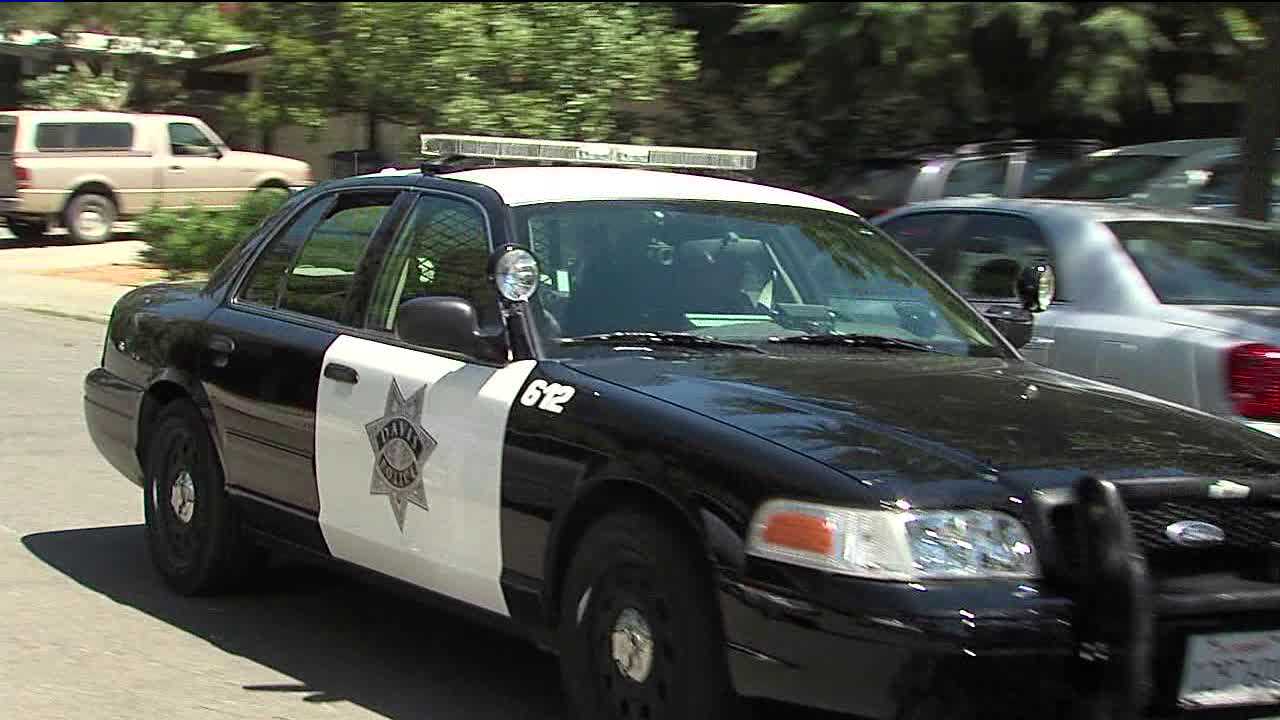

By Emily Dill
DAVIS — The Yolo County Grand Jury investigation of the Police Accountability Commission (PAC) suggested that the Davis Police Department (DPD) should have more involvement with the PAC proceedings – igniting passionate disagreements from commissioners as well as the public.
The grand jury looked into the PAC and reported 11 findings and eight recommendations. The first, and most contentious, of these recommendations is that one or more members of the DPD attend all PAC meetings.
The civil grand jury convened through the county’s superior court consists of up to 30 jurors. They sit for one year, examining different issues and investigating all kinds of topics. Previous reports have included investigations into the Yolo Habitat Conservation Plan and election security in Yolo County, according to David Lim, an attorney with Richards, Watson & Gershon, who gave the commission a quick informational presentation in last night’s meeting.
Grand juries usually consist of volunteers (potentially invited by the presiding judge) and people called to jury duty. Vice Mayor Frerichs pointed out that, “a majority of the Yolo County Grand Jury members tend to be volunteers,” and that judge invitation has proven to be an effective way to recruit members.
Commissioner Sean Brooks inquired about the origins of this investigation, saying, “It was very unclear in the report where the grand jury’s interest was generated.” Lim explained that the majority of the time the origins are unknown, and that holds true in this case: “They are not required to tell you, they can if they want.”
One public commenter also asked the commission about the basis of the grand jury investigation and if there was a way to subpoena the group or individuals who submitted the request, calling it “highly suspicious.”
Public commenter Connor Gorman urged the commission to disregard the grand jury’s recommendation for increased police involvement in PAC meetings. Gorman echoed other public commenters by stating, “The grand jury is trying to say that [the police] should have more say in this space as well and that’s really just a representation of the privilege that a lot of police departments feel around how much power and access they should have when they already have so much.”
Gorman also disagreed with the institution of grand juries, expressing that they “are very racist institutions,” and even though civil and criminal grand juries are different, “the history and structure [of both] is still very problematic.”
“Power dynamics” were consistently brought up by public commenters. Julea Shaw emphasized to the council that the PAC meetings are “one of the few spaces that [some members of the community] do feel they can speak,” and that she was “disturbed by this idea that we are trying to cater to this minority and how that was belittled.”
The commission shared their anger with the report, with many urging that a response should not be a main agenda item. Brooks stated, “This is not something we should take seriously.”
Brooks elaborated his concerns pointing out that “our decision to not have police present in our meetings was not a decision made lightly” and that the report gave the impression that the commission was only seeking to appease a small part of the constituency, which Brooks asserted is a “cynical way of saying we were trying to look out for members of our community who might be concerned about their safety.”
Other members of the commission shared Brooks’ discontent, emphasizing that there was an abundance of materials made available to the grand jury, and yet their report still seemed to lack important context.
Commission Chair Dillan Horton highlighted the commission’s emphasis on balance with the police department, pointing out their communication with DPD for information and technical expertise but also the need for the PAC to “make our meeting spaces an outreach accessible to everyone.”
Another public commenter Francesca Wright, encouraged the commission to continue their diligent work, stating, “The city of Davis needs to be very proud of how we have an independent police auditor who is an expert in policing, as a liaison with the PD with access to police information.”
Echoing the thoughts of various commission members, she continued to urge that they “strongly defend the rationale behind [lack of police presence in meetings] and the effectiveness of that.”
Commission members Cecilia Escamilla-Greenwald, Abram Jones, Judith MacBrine and Mary Bliss all concurred with Horton that there were aspects of the report the commission disagreed with and that a response should be made to the city council to express their concerns and give council more information.
While a response to the grand jury from the PAC is optional, City Council is required to make a formal response to the report within 90 days.
A movement was passed to create a subcommittee that would focus primarily on formulating a response to the grand jury report, in order to not divert any more time or effort away from the PAC’s upcoming agenda items.
The subcommittee will be creating this response based on the opinions expressed by members during this meeting, as well as more information and perspectives they will forward to the subcommittee through staff.
The subcommittee will consist of commissioners Bliss, Jones and MacBrine.
Horton emphasized that the response is necessary due to the commission’s unity in disagreeing with the report’s findings, stating, “It would be less crucial for us to have a substantive response if we just agreed with everything in the report.”
Support our work – to become a sustaining at $5 – $10- $25 per month hit the link:

This is going to be interesting to watch play out. Especially the idea of where the investigation was initiated from, and whether it is appropriate and/or productive to have a police dept member present.
Would a possible solution/compromise be to have a police dept member present, but have them not present on occasion when a member of the public who wishes to testify without a police presence makes that request?
The police presence issue is an interesting one. We hosted at least two meetings in 2017 and invited the police. There were people who simply would not participate even with a non-uniformed officer present. I think the GJ downplays the concerns for impacted populations but I also think that a blanket ban is self-defeating. So there needs to be a middle ground – and I also think that there have been some discussions this year where the chief or community service officer did participate. So the timing of the report might be a bit dated.
I think you and I may more or less agree that there could be a middle ground. When you say ‘people who simply would not participate’, are you referring to members of the public, or commissioners?
Members of the public
” Lim explained that the majority of the time the origins are unknown, and that holds true in this case: “They are not required to tell you, they can if they want.” ”
Who’s Lim?
I would not let weasels into my chicken coup. Police presence is a deterrent to free discussion of police misconduct/corruption. Their ability to arrest or kill witnesses is obviously a hurdle too high.
How many dead witnesses killed by police do you believe there are in Yolo County, JH? I’ve heard all those dead witness’ bodies are dumped along the west levee of the Sacramento River south of Knights Landing in shallow graves. When will the mass killings of witnesses by police in Yolo County stop? 😐 ;-( 😐
If you go back to the City Council meeting of 06/12/2018 and the report, which I substantially wrote (Agenda Item 5), about the formation of a Police Oversight System (this was the formative document instructing staff to move forward with the plan), you will see that I proposed three meeting elements. I think this approach could still work.
From the report:
This is amazing. Instead of trying to find a path forward that takes into account the GJ report and the concerns of those unwilling to speak freely if police are present the PAC reaction is to push back on the GJ. I’ll predict that isn’t going to go well with the City Council.
Demanding to know where this came from and attacking the historical nature of the GJ as if this is some sort of 1619 Project issue isn’t going to fly. The way this works is the GJ investigates you. You don’t get to investigate the GJ. Concerns about the nature of Grand Juries should be reserved for another day. Right now the PAC needs to respond to the issues raised in the report. The most shocking part is that several people in this article are seeking elected office while at the same time this article demonstrates a level of political immaturity that leaves this reader scratching his head.
Robb Davis has this exactly correct and the PAC would be well advised to take heed of his advice. If you don’t the CC is likely to do it for you just as it did with the Human Relations Commission over a decade ago.
” If you don’t the CC is likely to do it for you just as it did with the Human Relations Commission over a decade ago.”
I can almost guarantee that won’t happen – especially during these times.
Everyday things change
And the world puts on a new face
Certain things re-arrange
And this old world seems like a new place
What’s this old world coming to
Things just ain’t the same
Any time the hunter gets captured by the game
— Smokey Robinson
Maybe not exactly the same but if you think the CC is going to not insist on changes at the PAC you are probably mistaken.
I think they will likely change the rule. I suspect it doesn’t go further than that.